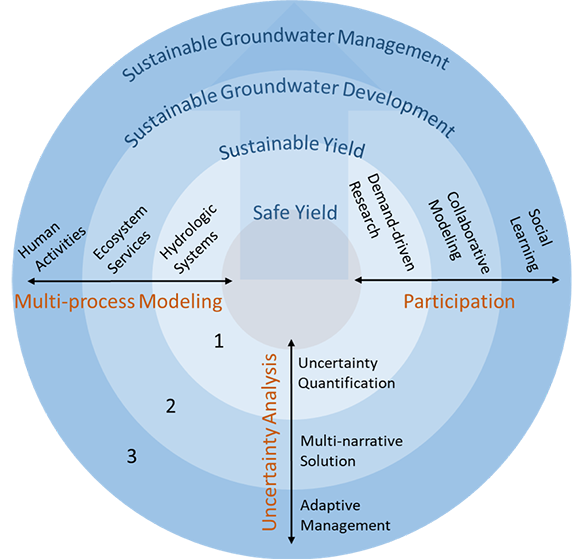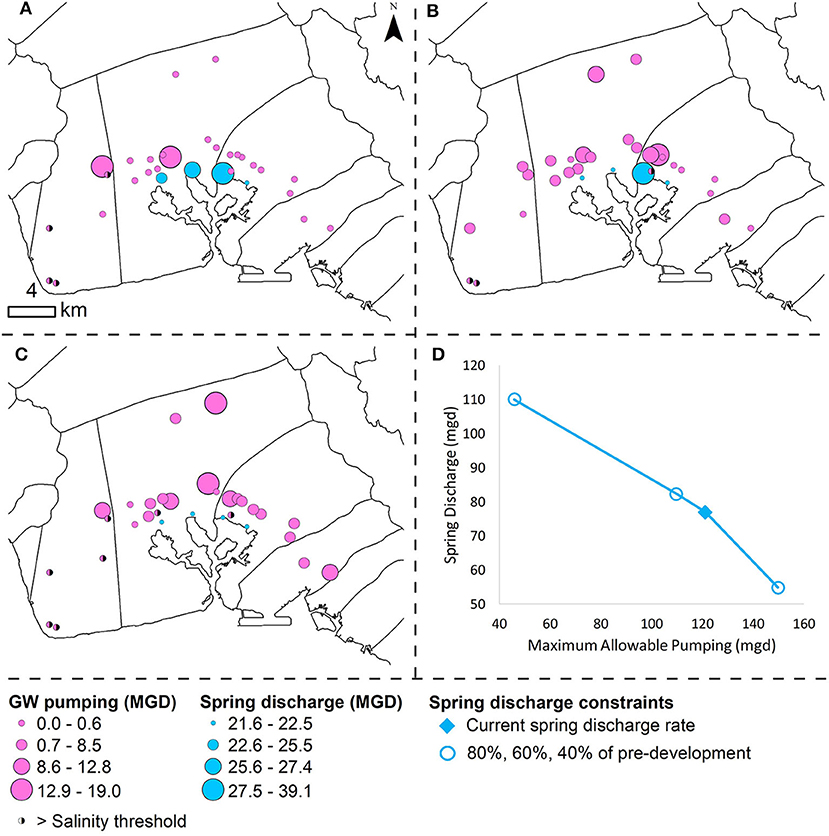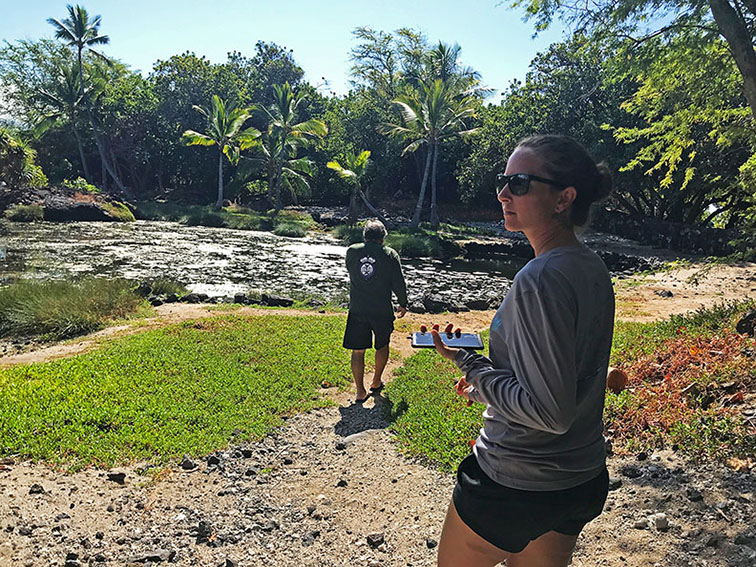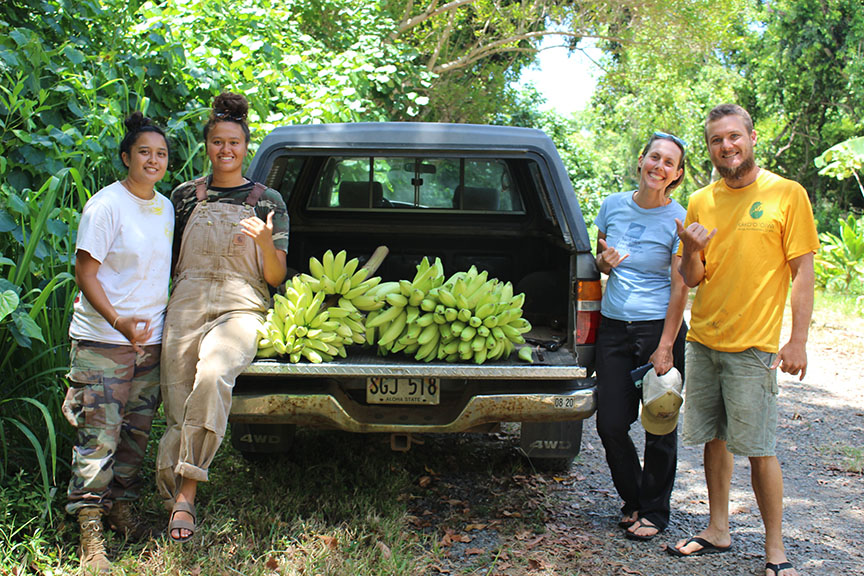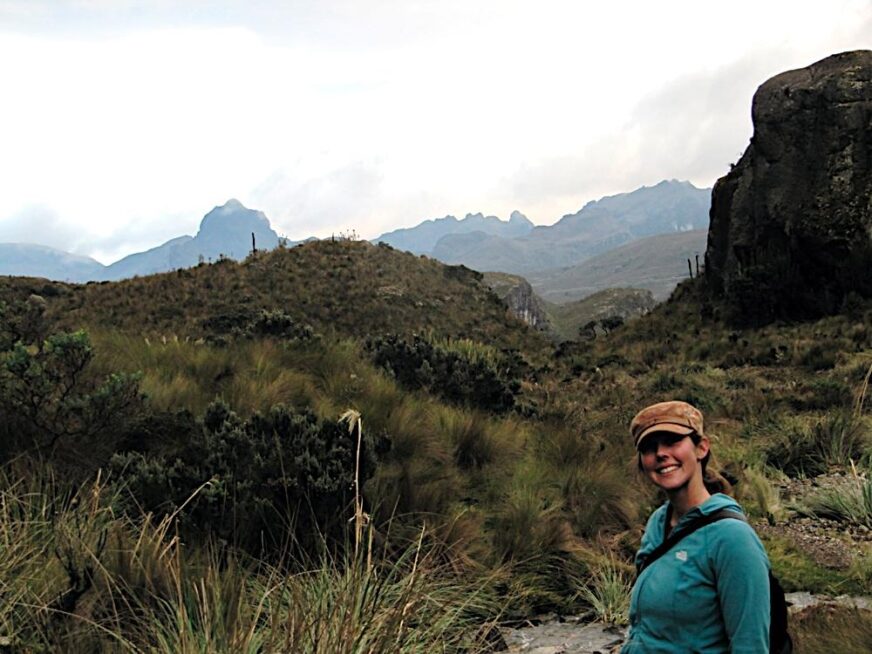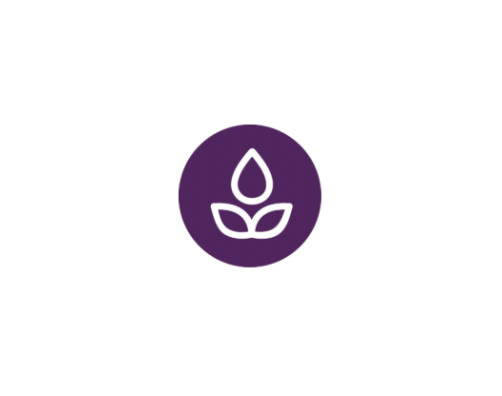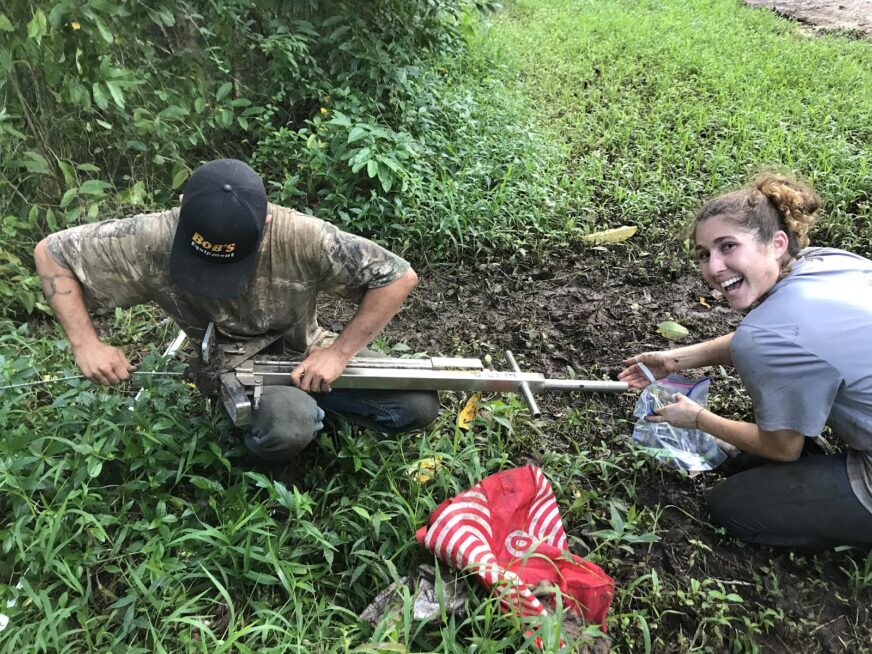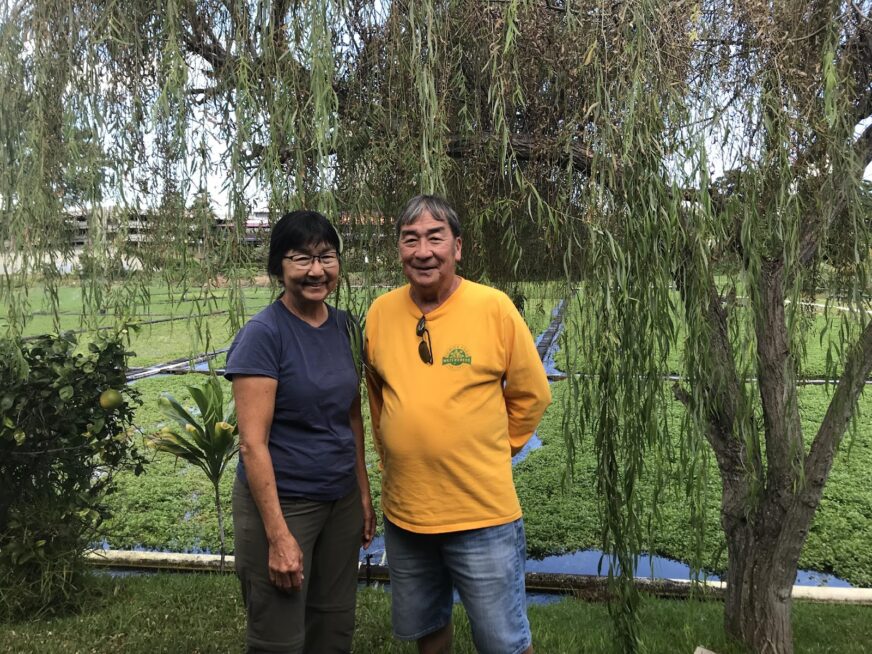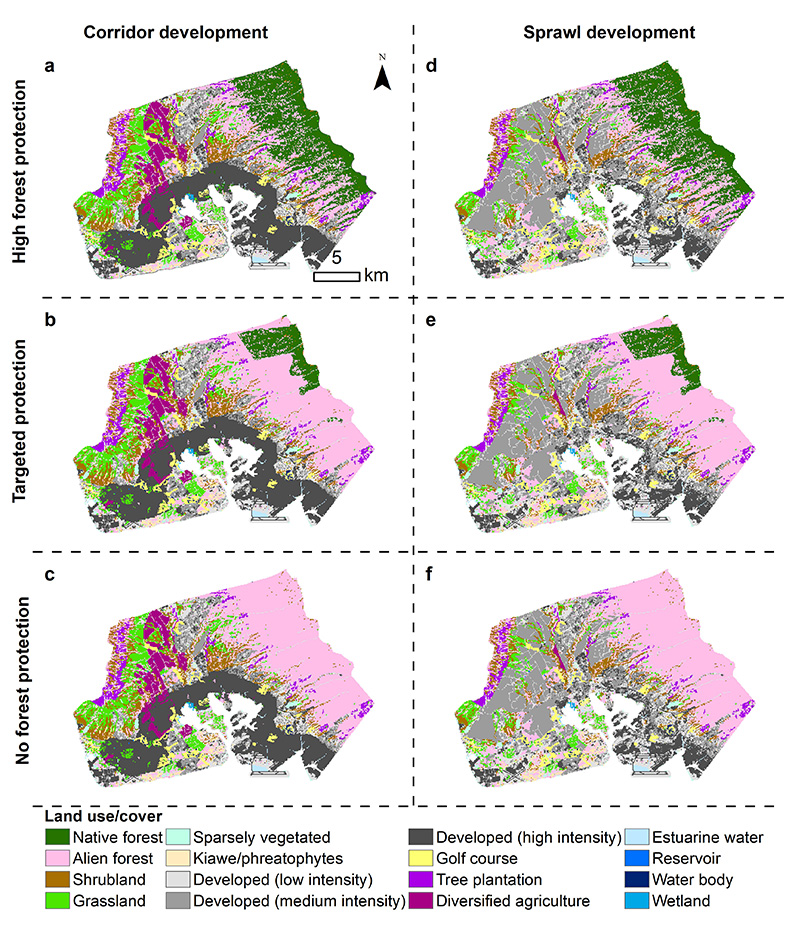Groundwater Sustainability: A Review of the Interactions Between Science and Policy
This study provides a systematic review of the concept of groundwater sustainability, and situates this concept within the calls from the hydrologic literature for more participatory and integrated approaches to water security
Incorporating Historical Spring Discharge Protection Into Sustainable Groundwater Management: A Case Study From Pearl Harbor Aquifer, Hawai‘i
This research provides decision-makers in Hawai‘i with information regarding the trade-off between groundwater pumping and spring discharge, which is connected to multiple benefits, including historical and cultural values in line with codified state beneficial use protections.
Linking Watershed and Groundwater Management to Groundwater Dependent Ecosystems and Their Linked Ecological, Cultural, and Socio-Economic Values
We develop future scenarios of cesspool (wastewater) management, forest conservation, groundwater pumping, and climate change to assess how coastal groundwater quality and quantity may change and how this may affect culturally and ecologically valuable groundwater dependent ecosystems along the coast of the Keauhou aquifer.
Enhancing Social-Ecological Resilience and Ecosystem Services Through Restoration of Coastal Agroforestry Systems
Agroforestry systems have the capacity to support resilient coastal communities through providing food, conserving native biodiversity, and supporting multiple ecosystem services, and represent growing priorities for conservation initiatives worldwide
Synthesis of the Physical and Socio-Political Aspects of Hydrological Research in the Páramo
The objective of this project is to synthesize the current status of knowledge regarding the effects of land cover and climate change on the hydrological functioning and linked social and economic outcomes in high elevation Andean páramo grasslands from Perú to Venezuela.
Land-Based Solutions: Activating Landscapes for Climate Change Mitigation and Soil Health
How do we activate a soil research agenda that illuminates the linkages among soils, landscapes, and societal health and motivates protection and restoration of these diverse, productive systems?
On the Path to Carbon Neutrality: A Hawaiʻi Carbon Land Use Opportunity Assessment
To maximize landscape-scale sequestration rates, we will work with stakeholders and resource managers to develop a land-use classification map optimized for climate mitigation at the State of Hawai´i scale.
Collaborative Research With Kākoʻo Ōiwi, Heʻeia, Oʻahu: Restoring a Multi-Functional Agroforestry System
We are collaborating with a community-based organization, Kakoʻo ʻŌiwi, to restore and monitor a multi-functional agroforest using a participatory functional trait and biocultural approach.
Collaborative Research to Support Urban Agriculture in the Face of Change: The Case of Sumida Watercress Farm
This study focuses on a researcher-farmer collaboration in the highly urbanized Pearl Harbor area of Oʻahu aimed at understanding the historical and current challenges and opportunities facing a culturally and economically spring-dependent watercress farm.
Effects of Land Cover Futures and Watershed Protection on Sustainable Groundwater Management in Hawaiʻi
This research examines the effects of stakeholder-defined future watershed management and urban development land cover scenarios on groundwater recharge, sustainable yield, and groundwater replacement costs in the Pearl Harbor aquifer.
![]()
